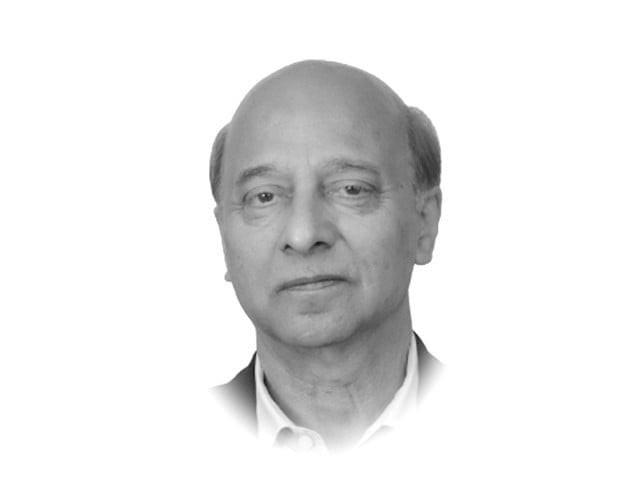Trump and ancient Chinese wisdom
.

Is Donald Trump the present day manifestation of the ancient Chinese businessman who enjoyed the least of respect in society? A direct comparison may sound unfair to the president, but his fixation on tariffs – seemingly rooted in arrogant nationalism – has prompted many in China to recall how ancient Chinese emperors and philosophers viewed businessmen. The falling out of Trump and Elon Musk – two powerful businessmen – also perhaps offers the latest illustration of that Chinese wisdom on businessmen's propensity to be self-righteous, arrogant and self-serving when the situation so demands.
When Trump, a businessman turned politician, intensified his pursuit of increased tax revenues by imposing customs duties on a wide range of US imports from various global sources, he elicited a reaction from even the most esteemed traditional partners, such as the European Union and India. While Trump's intentions to revitalise the US economy and achieve 'Make-America-Great-Again' resonated with many, his actions evoked a comparison in China to the behaviour of ancient Chinese businessmen. These individuals were renowned for their unwavering pursuit of personal gain, often disregarding societal norms and values. This is how businessmen were viewed in general.
Within the traditional Chinese cultural hierarchy, the Emperor of course stood above everybody else, with the absolute authority. All others – the citizens of the empire – however, were divided into four distinct classes. While businessmen were respected for their wealth and success, their primary focus on profit was perceived as less noble than their contributions to society through learning or government service.
The most esteemed members of this class were the wisemen, scholars, advisors and officials. Their invaluable contributions to the Emperor's governance were recognised through their knowledge, virtue and intellectual pursuits. Their writings and intellectual endeavours were highly valued and contributed to the state's development.
The second most respected class consisted of farmers, who were responsible for cultivating crops and providing food for the population. They were regarded as the foundation of the economy, ensuring the sustenance of the entire population.
Artisans, technicians, engineers and construction experts, who possessed specialised skills, were the third most esteemed class. Their contributions were instrumental in developing technical tools and facilitating daily life.
The business community, comprising merchants, held a lowly position in society, regarded as the least respected class. The Emperor held a disdain for businessmen, believing they prioritised money over morality and would resort to any means, ethical or immoral, to achieve financial gain. Consequently, few businessmen sought proximity to the Emperor.
While there were methods to evade the Emperor's disdain, businessmen were generally the least welcomed and least respected members of the royal court due to their perceived greed for wealth.
However, this perception has shifted over time, not only in China but also in other parts of the world. Businessmen have played a pivotal role in the country's economic growth, exemplified by the billionaire founder of Ali Baba, Jack Ma.
The concept of 'Chinese businessman wisdom' has emerged, referring to the practical, astute, and often pragmatic approach to business that is highly esteemed by both Chinese and international audiences.
The traditional hierarchical structure has undergone a gradual softening, and various professions, including business, are now recognised for their unique contributions to society. The contemporary emphasis on economic development has fostered a more positive attitude towards business and entrepreneurship. The government actively encourages entrepreneurship and private enterprise, acknowledging the indispensable role of businesses in the nation's development.
Nevertheless, certain actions are considered unacceptable and should not be crossed. Jack Ma's conduct a few years ago prompted many to draw upon ancient wisdom and draw parallels between the past and the present. His interactions with the central bank invariably drew comparisons to the past and often served as an example of a businessman attempting to exert control over the central bank.
The context involved technical difficulties experienced by Ali-Pay, a digital payment system, in conjunction with the central bank.
Upon making his public complaint, Jack Ma faced significant repercussions from the Chinese authorities. His passing remark about China's finance system was interpreted as a mockery by the Beijing authorities, leading to questions about his intentions. They expressed concern that Jack Ma might intend to control the finance system through Ali-Pay.
As a result, Jack Ma encountered substantial opposition from the authorities. They argued that the Central Bank is a trusted institution – in fact a public Trust – that efficiently manages and looks after the interests of the people. If allowed to operate like a Western capital institution, entities such as Ali-Pay could potentially disrupt the system and harm the interests of the Chinese people.
The official backlash compelled Jack Ma to take a break from business – a sort of sabbatical. However, he recently resurfaced with more empathetic views on China's financial system – more aligned with the national ethos as projected by the leadership. A Chinese friend described him as helpful and engaged in significant philanthropic activities – something expected of every affluent Chinese who are expected to pay back after benefitting under the system, which rests on a national spirit and ethos that keep citizens at the centre. The citizen, says the ancient Chinese philosophy, is central to a state's stability, and hence his/her welfare is paramount for the political economy.
All indicators suggest the Chinese Communist Party continues to follow that golden philosophy. It's yet to be seen how much the Trump-Musk acrimony hurts the people. There couldn't have been a better validation of the Chinese definition of a businessman than the mutual public trolling both Trump and Musk indulged in following the implosion of their alliance.














COMMENTS
Comments are moderated and generally will be posted if they are on-topic and not abusive.
For more information, please see our Comments FAQ